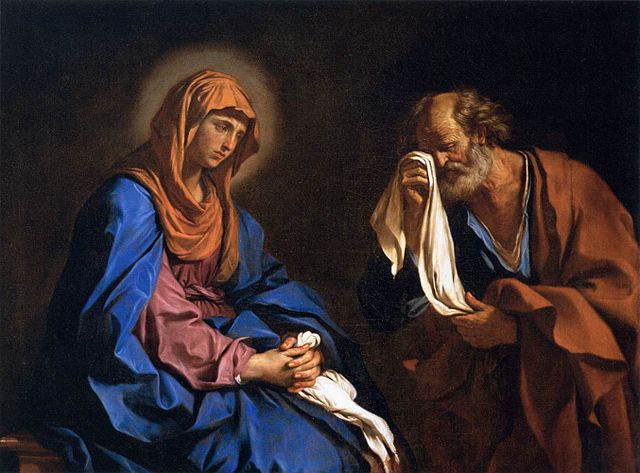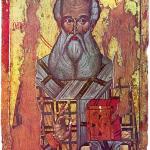
Why establish an office (Peter, in effect, was made the prime minister of the Church by Jesus, as the exegesis of the “keys of the kingdom” establishes, with much Protestant exegetical support), only to have it cease with the death of Peter? That makes no sense. The very nature of an office is to be carried on; to have a succession. One doesn’t start a business, e.g., with a president, and then after the first president dies, the office ceases to exist and everyone is on their own. His former office is made into a lounge . . .
We’re told that “the Bible doesn’t mention Roman bishops at all.” So what? It doesn’t mention the canon or sola Scriptura at all, either. But it certainly does mention bishops and mentions distinct churches. It doesn’t take a rocket scientist to put two and two together.
The case for the papacy is a cumulative argument. As such, showing that the consensus today is that Peter was the Rock is one aspect of that. It isn’t the whole ball of wax. We also show what was meant by having the keys of the kingdom, etc. We support our positions one-by-one and then conclude that the evidence is strong. It is irrelevant whether the scholars cited accept the papacy or not. If anything, they are important as “witnesses” for our biblical “case” precisely because they are ultimately “hostile” witnesses, who cannot be accused of Catholic bias.
The main things, far and away, were Jesus’ own words to Peter. That’s where the whole notion originated. It didn’t come from nowhere, or “vain Romish imaginings and wishful thinking.” And that’s a pretty good place to start (with our Lord and Savior Jesus). Once one admits that Peter was the leader of the apostles, then that is perfectly consistent with our argument that this is an indication that he would be the leader of the Church Universal.
It’s significant that Peter as an individual was given the power to bind and loose, whereas the other disciples received it corporately. To me that signifies a leadership or preeminence. That is the Hebrew and biblical mindset. He is also given the keys of the kingdom, which cannot be without great import. And no one else is called the Rock, upon which Jesus builds His Church. There is no way out of that uniqueness. We agree that others bind and loose as well (they even “loose” the pope from sin, as he regularly confesses his sins to another priest). Bishops and priests also have granted prerogatives from God.
Peter’s denial of Christ no more proves that he wasn’t pope, than David’s sin with Bathsheba and murder of her husband proved that he wasn’t king, or the subject of a covenant with God, or the writer of most of the Psalms. Paul killed Christians before God knocked him off his high horse. What does the fact that a person sins have to do with anything? Isn’t that what Christianity is about? To redeem sinners? If sinners can write an inspired, inerrant, infallible Bible, they can certainly be used as infallible popes as well.
The development of the papacy took a little time, just like the canon and trinitarianism and Mariology did. Faith alone and imputed, forensic justification took a lot of time, too, didn’t they? Protestant scholars Norman Geisler and Alister McGrath both essentially admit that such doctrines were absent from the Christian Church between the time of Paul and Luther (the same is certainly true of a symbolic Eucharist and baptism, and many other novel Protestant doctrines). 1500 years for one of the pillars of Protestantism to be understood as the “plain” teaching in Scripture that it is claimed to be? That has a full development and understanding of the papacy beat by a good 900 years (if we date the fully developed papacy from Pope Gregory the Great’s reign (590-604).
It is claimed St. Augustine had a weak view of the papacy at best. The evidence of his own words contradicts this:
If the very order of episcopal succession is to be considered, how much more surely, truly, and safely do we number them from Peter himself, to whom, as to one representing the whole Church, the Lord said: Upon this rock I will build My Church, and the gates of hell shall not conquer it. Peter was succeeded by Linus, Linus by Clement, Clement by Anacletus, Anacletus by Evaristus . . . (Letter to Generosus, 53, 1, 2 [c. 400] )The succession of priests, from the very see of the Apostle Peter, to whom our Lord, after His resurrection, gave the charge of feeding His sheep, up to the present episcopate, keeps me here [in the Catholic Church]. (Against the Letter of Mani Called The Foundation, 4,5 [written in 397] )
Protestant historian J. N. D. Kelly states:
[Augustine] . . . regarded St. Peter as the representative or symbol of the unity of the Church and of the apostolic college, and also as the apostle upon whom the primacy was bestowed (even so, he was a type of the Church as a whole). This the Roman Church, the seat of St. Peter, ‘to whom the Lord after His resurrection entrusted the feeding of His sheep’ [C. ep. fund. 5], was for him the church ‘in which the primacy (‘principatus’) of the apostolic chair has ever flourished’ [Ep. 43,7]. The three letters [Epp. 175-177] relating to Pelagianism which the African church sent to Innocent I in 416, and of which Augustine was draughtsman, suggested that he attributed to the Pope a pastoral and teaching authority extending over the whole Church, and found a basis for it in Scripture. At the same time there is no evidence that he was prepared to ascribe to the bishop of Rome, in his capacity as successor of St. Peter, a sovereign and infallible doctrinal magisterium. (Early Christian Doctrines, San Francisco: HarperCollins, revised edition, 1978, 419)
This is perfectly in accord with what we would expect at that time, in that period of development.
***
(originally 2-26-02)
Photo credit: St. Peter Weeping Before the Virgin (1647), by Guercino (1591-1666) [public domain / Wikipedia]
***













